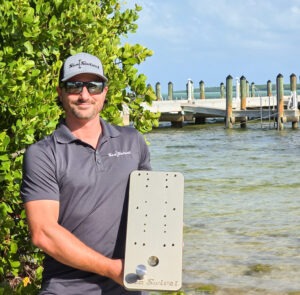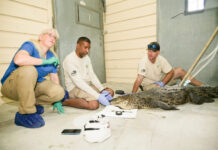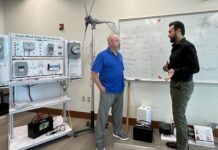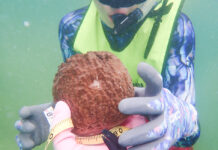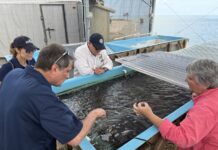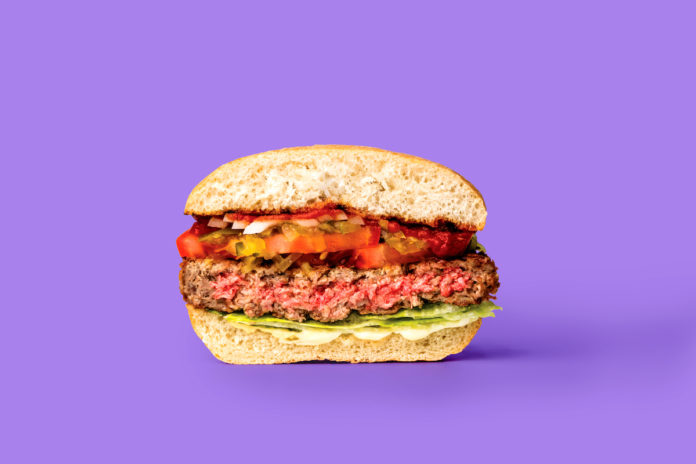
If I told you eating a burger could help save the world, you might color me crazy and tell me to just pass the meat. After all, cows fart methane (a greenhouse gas), and forests that help lower the impacts of climate change are being cut down to create cattle-grazing land and to grow feed for cows. So how does eating more burgers help the planet?
Impossible Foods is a California-based company whose flagship Impossible Burger has taken the world – and even the Keys — by storm. The key difference about this burger is that it doesn’t contain any meat. Yes, you read that right. It’s a meatless burger that cooks and tastes like a traditional beef burger. Sounds, well, impossible, right?
Keys Weekly sat down for an exclusive interview with the food-tech startup, as well as some Keys restaurants and grocery chains serving the new “meat,” to find out more about this innovative new product.
“We developed a product just as delicious, the same or better in heath, and with the same culinary experience as meat,” says Rebekah Moses, the head of impact strategy at Impossible Foods Inc. “We’ve made a meatless burger for meat eaters.”
The Impossible Burger isn’t marketed as the next big thing in veggie burgers. Instead, it’s presented as a really delicious burger that happens to be plant-based. “Veggie burgers weren’t intended to capture the carnivore market,” said Moses. “The watershed moment for Impossible was creating a burger that tastes like a burger.”
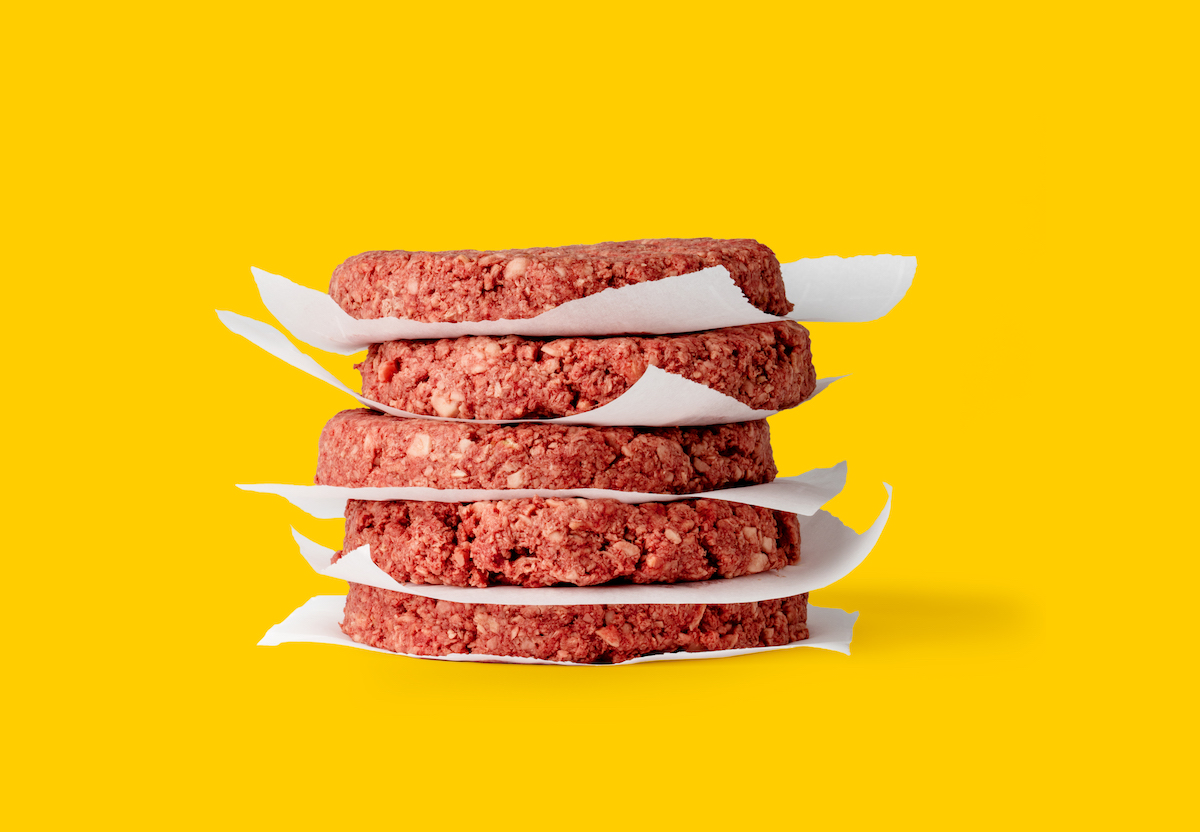
The beef made by Impossible Foods is 50% water (just like traditional ground beef), soy protein, coconut oil, sunflower oil, potato protein and heme. That last ingredient is leghemoglobin protein, and it’s what makes meat taste like meat. The product is a result of five years of research and development meant to trick the consumer’s senses to forget that they’re not eating meat. Oils and fats allow the Impossible Burger patties to sizzle on the grill similar to how meat burgers do, and the heme tricks our taste-buds into experiencing a meat-like savory satisfaction with each bite. The sum total is a plant-based burger that cooks and eats surprisingly like a beef burger.
Nate Amadon, a resident of Key Largo, was pleasantly surprised by the Impossible Whopper from Burger King. “Honestly, I don’t know if I could’ve noticed that it wasn’t beef if I wasn’t told. The flame-broiled taste was still there,” says Amadon. “I’m a carnivore, no doubt, but would I try it again? I absolutely would.”
Patrick Unique, the manager of the Burger King on Stock Island, reports similar findings for his store. Unique started serving the Impossible Whopper four months ago, and his customers couldn’t tell the difference. “They loved it. To me, it tastes even better than a whopper. Flavor-wise, it’s all there and it’s never dry,” said Unique. The southernmost Burger King was among the first in the world to offer the Impossible Whopper, and Unique sells almost as many Impossible Whoppers as conventional Whoppers each month. Globally, Burger King’s sales have risen 15% due to the addition of the Impossible Whopper.
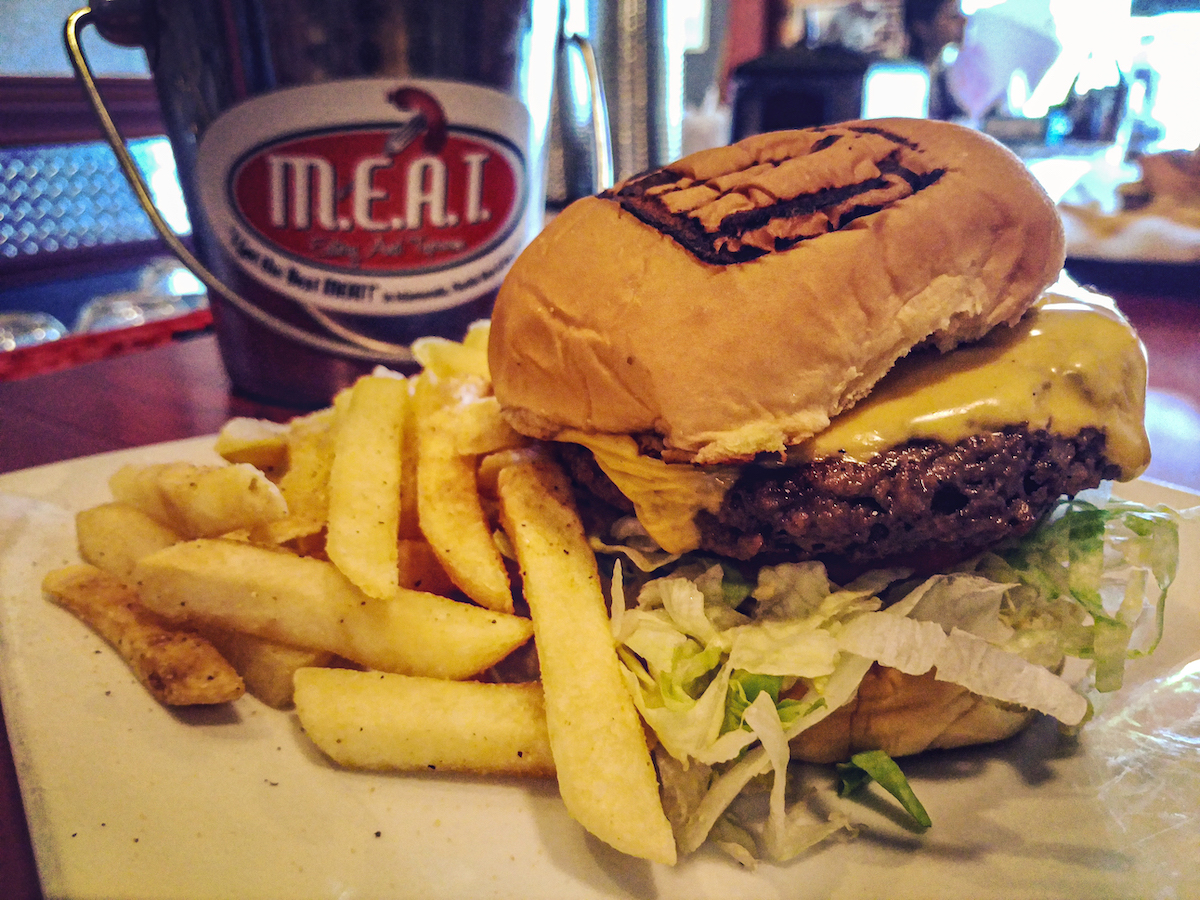
M.E.A.T. Eatery and Taproom in Islamorada started serving the Impossible Burger a year and a half ago. Owner and chef Tom Smith prepares the Impossible Burger the same way he does his award-winning traditional burgers, and the results end up so similar that Smith has had over a dozen calls from food pick-up customers claiming they were given the wrong burger – a beef burger instead of the Impossible. “It cooks pretty much just like a regular burger without as much ‘shrinkage’ in the volume,” he said. “People have overwhelmingly loved it.”
The product has helped bring meat eaters and vegetarians to the table together – sometimes literally. On her first day at work, Shelby Cornell, the new marketing associate at Coral Restoration Foundation, was taken to lunch. The co-workers group included a mix of vegetarians and meat-eaters. They ended up at M.E.A.T. because the restaurant offers the Impossible Burger. “Even though I’m not a vegetarian,” said Cornell, “I ordered the Impossible Burger. It tasted so much like a regular beef burger that I forgot what I was eating until I was almost finished. Delicious is an understatement.”
This sensory mimicry is precisely what Impossible Foods is going for. The company was founded by Patrick Brown, a biochemistry professor at Stanford University, with the ambitious goal of reducing the negative climate and biodiversity impacts of beef production. By creating a beef-less burger that even meat-eaters want to eat, Brown hopes to reduce the destructive footprint humans have had on the environment.
“The single most effective way to avoid deforestation from soy is to eat a soy-based burger,” said Moses. “It’s counter-intuitive, but beef is inefficient. It takes about 36 pounds of corn and soy to produce 1 pound of beef, because the animal consumes a lot of food over its lifetime. If you eat a soy-based Impossible Burger, we don’t have to feed the animal. It’s 1-1 efficiency.”
In a company blog, Brown offers up more specific environmental benefits of the Impossible Burger: It requires about 75% less water and 95% less land and generates approximately 87% less greenhouse gases than a conventional burger made from cows.
Impossible Foods hopes to change the world, one burger at a time, by meeting their meat-eating consumers where they are. “Ninety to 95% of our customers eat meat on a regular basis,” said Moses. “Vegans and veggies are already doing the right thing and eating sustainable, so we wanted to capture the meat market by providing them with an alternative they would want to eat. That way, even if someone isn’t into climate, if they eat the Impossible Burger, they still do good. We put the tools of climate and biodiversity help into their hands, even if they don’t believe in it, just because it tastes that good.”
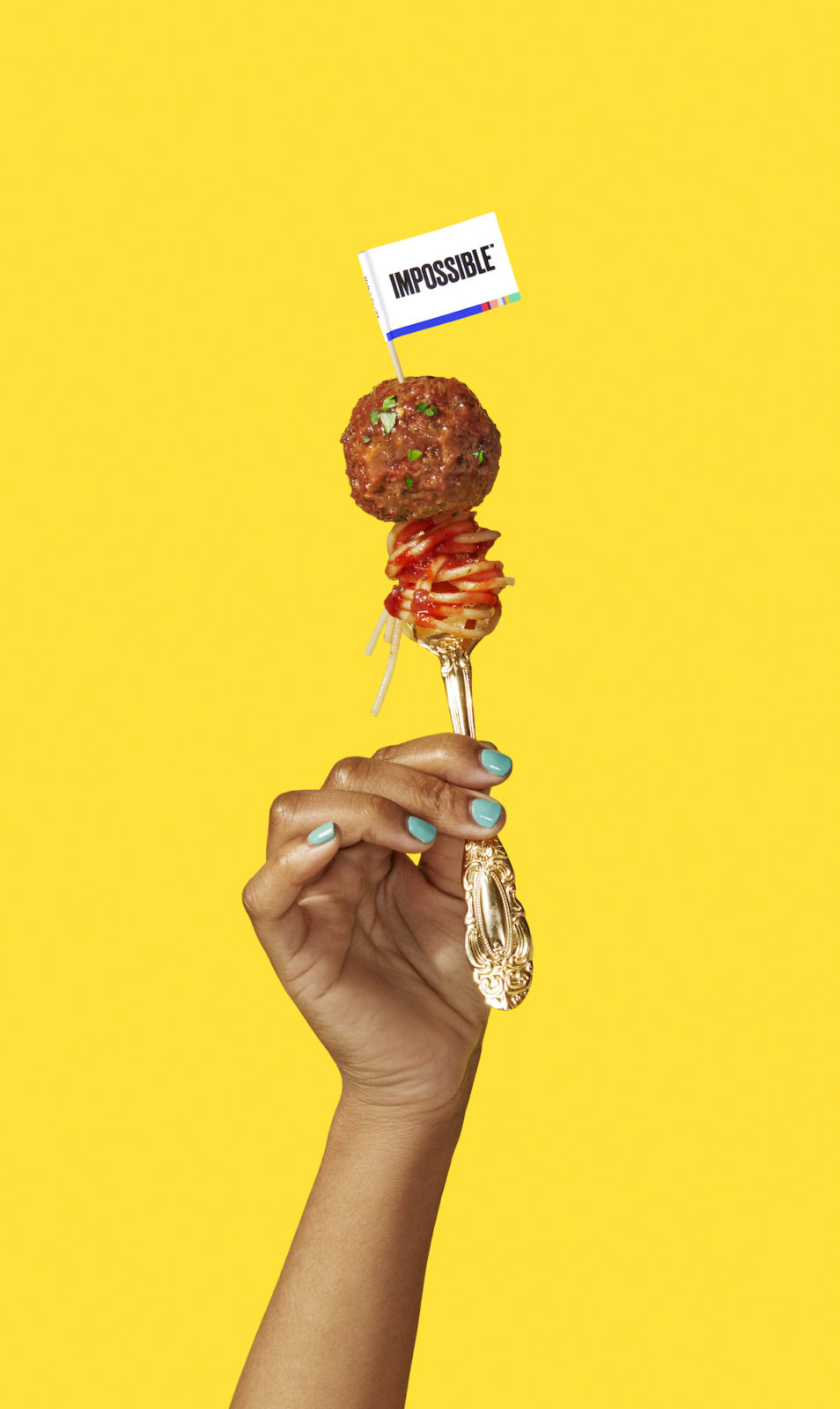
Keys restaurants that currently serve the Impossible Burger
Burger King (Key Largo, Islamorada, Key West)
M.E.A.T Eatery & Taproom, Islmorada
Bayside Gourmet, Islamorada
Cheeca Lodge, Islamorada
Islamorada Fish Company, Islamorada
Bucktooth Rooster, Big Pine Key
Hardrock Café, Key West
For other locations globally, visit https://impossiblefoods.com/locations/
















